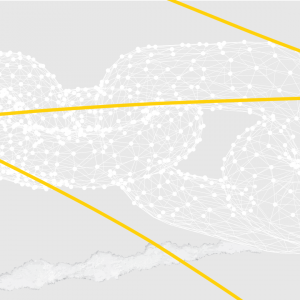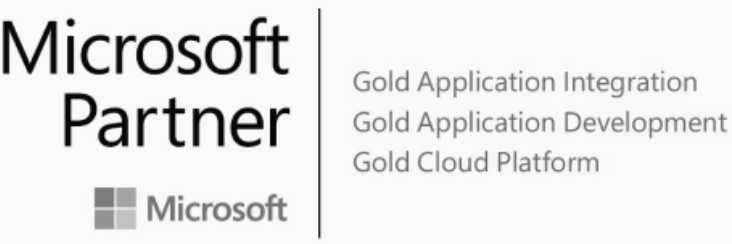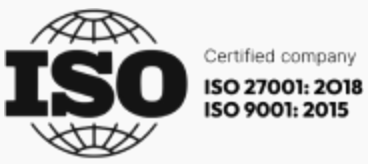The trouble with this whole pandemic is that it makes all days look pretty much like one another. Would you believe that it’s already November? It sure doesn’t feel like it. More like March the 246th.
Days are certainly blending themselves when you work from the same place, wear the same comfy clothes and do the same tasks over and over again. Now, your work and the life you have outside of it are all mixing up together, becoming a huge routine. Wouldn’t you like to spark it up a bit?
Unless you have some magical pharmaceutical skills or an enchanted wand to make all this pandemic go away, you really can’t do much about the context, so you have to accommodate it. However, there’s still something you can do about your job, optimizing in a way that it never fails to excite you, something about the tasks you encounter and the way you look at them.
You may ask “but how?” and I’m more than happy to provide some useful information for you.
First of all, let me introduce you to the concept of job crafting.
What is Job Crafting?
Job crafting is basically any change that you willingly make from the standard job description of your role, in order for it to better satisfy your needs, whether we are talking about emotional, professional, or well-being needs. These changes may refer to your behaviors, the people you work with, or how you perceive your job.
How do I get started with Job Crafting?
Oftentimes, changes come with little anxieties and moments of indecision. You know that you want to make a change, but you don’t even know where to start. In the scientific world, there is a framework called Job Demands-Resources. Basically, every job has its demands and its resources, and if they are well balanced, they lead to high performance and a general sense of well-being.
To start your job crafting experience, try to make a kind of a Pro vs. Cons list, but with the resources and the demands, you have in your job. After you do this, think about what you’re missing. Maybe you got so good at your job that you can do it with your eyes closed and feel the need to learn a new skill. Possibly, despite the fact that you may see your team colleagues every day, you miss the people you had short conversations with during the time you made your coffee. Do you think your job is boring and it doesn’t have an impact? Ask the colleagues around about your contributions and have a change in perspective.
There are three levels where you can bring changes: task crafting, relationship crafting and cognitive crafting. It may sound vague, but allow me to document these with a few examples from RebelDot.
What is task crafting?
For instance, Petruta gradually started to juggle between an Employer Brand Specialist role and a Product Manager one. When we decided to develop our own product, she took the skills she developed to manage her own start-up, Parentool, and started applying them to our company. That is how Visidot was born and now Petruta is a full-time Product Manager.
You feel like you’re getting used to the Quality Assurance practices and want to add a little spice to your work? Why not try to adopt Scrum Master responsibilities? At least that’s what happened to our colleague Andrei, who felt that he needed a little bit more of a challenge in his professional life and decided to direct his amazing people skills towards project management.
That’s what we call task Crafting and that’s also what Andrei and Petruta did in order to feel more fulfilled at work. After all, it’s also one of our key company values.
Keep in mind, though, that task crafting does not have to be an extreme change. For example, writing articles is definitely not in my job description, however, this small responsibility keeps me engaged and makes me happy.
If performance is what you’re after and you’re trying to make an impact on your responsibilities, setting and then checking the qualitative and quantitative key performance indicators would be a good starting point. Keeping up with the newest developments in technology and procedures is also a good way of staying connected and improving your overall performance.
What is Relationship Crafting?
The pandemic came with its own struggles, mainly in the social area of our lives. I certainly feel like I miss my colleagues a lot and are such a big part of my job. Relationship crafting is all about reshaping the interactions while you do your job. To do this, I participate in our renowned Blind Dates and Coffee O’clock initiatives. It certainly helps me to get in contact with different colleagues and then stay in touch with them.
We have designed and implemented a Buddy Program for our new joiners to help them accommodate better in their first three months in RebelDot. We had a couple of colleagues who decided to sign up for this project and relationship craft their jobs, involving themselves in showing the newbies our way of working and having fun.
Moreover, another type of relationship and task crafting (what a combo!) would be informal mentoring. If you have a colleague you admire and has the skills that you would like to learn, hit them up! Besides the technical mentoring, you’ll also get yourself a friend. Win-win situation! If you’re a person with more domain-specific knowledge, you can also “adopt” one of your colleagues who is just now starting their career path. That would be an awesome opportunity to guide them along.
If you have one “office best friend” that you used to hang out with and did a great job together, but now they are working on a different project, remember that they are only one Slack call away. It certainly brings a bit of joy when you get to talk to them and remember the fun times you had at the office.
Brainstorming sessions are also a small gate to contacting a colleague you do not work with, but you would greatly appreciate their input on the problem. Go out of your way and ask for “outside” help. Sometimes, people who are not directly involved with your project can have a different and innovative perspective on the problems you are facing.
What is Cognitive Crafting?
Technically, one of the tasks Dragos has is to document and then write articles in different areas of expertise. However, he does not see this part of the job as dealing with a mountain of research and then transferring it to a post. He sees it as an opportunity to educate others, to bring light to what we do as a company, and make us shine.
This is called Cognitive Crafting, and it’s all about changing the perspective on how you view your job.
Or perhaps change might be too much of a radical word to describe a mere adjustment of the angle you look at the work you are doing. Think about this technique as having a binocular whose zoom you can play with, shifting from that one seemingly minor purpose of yours to the big picture that you and your colleagues are painting day by day. It is only then when you will realize the many facets of the impact your actions bring.
On a more metaphorical level, it has to do with our collective willingness to be part of something bigger than ourselves. But how are you going to assess whether you are already part of that if you’re not taking the initiative to see behind the horizon?
Bring more meaning to your job.
Now that we’ve been through all the kinds of job crafting that you can apply, you can understand that this process is a wonderful tool to bring more meaning to your job.
If you feel that you have any skills outside your job description that could shine through in your company, all you have to do is talk to the people who can make these changes happen. I am sure they would be more than willing to accommodate you.
Job crafting is an awesome way to prevent burnout and disengagement, but make sure to take things slowly. Taking on too many responsibilities can bring more stress and can directly impact your well-being.
Lastly, perspective is everything in whichever area of life you look. The same applies to your job. Take a step back and evaluate the impact you make and focus on the positive aspects.
We are all working in dynamic contexts, and, to properly face all the challenges, we have to be dynamic as well. Don’t settle if you’re not happy with the way you are working.
You have the power to make changes and job crafting applies anytime, anywhere, independent of the context we are living in.
Don’t forget that.
Stay rebel!





